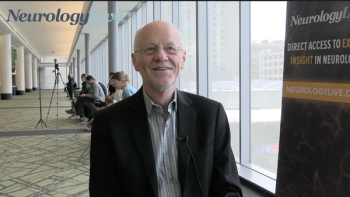
The professor of neurology at King’s College, London, spoke about the phase 3 ELEVATE trial investigating atogepant for episodic migraine at the 2023 AAN Annual Meeting. [WATCH TIME: 5 minutes]

The professor of neurology at King’s College, London, spoke about the phase 3 ELEVATE trial investigating atogepant for episodic migraine at the 2023 AAN Annual Meeting. [WATCH TIME: 5 minutes]
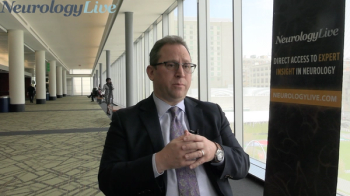
The head of the Stroke Program and Medical Director of the Comprehensive Stroke Center at Cleveland Clinic provided perspective on the ENRICH trial, the first positive surgical trial for intracerebral hemorrhage. [WATCH TIME: 5 minutes]

CND Life Sciences’ α-synuclein skin biopsy test showed sensitivity rates ranging from 92.7% to 100% across a number of assessed and clinically confirmed synucleinopathies, including Parkinson disease and dementia with Lewy bodies, among others.

A greater proportion of patients on ubrogepant reported absence of moderate-to-severe intensity headache within 48 hours, ability to function normally, and absence of headache of any intensity.
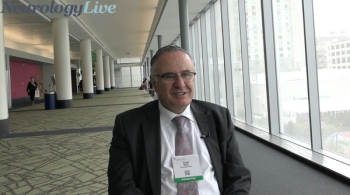
The director of Cleveland Clinic’s Epilepsy Center provided an update on the World Brain Study, a large-scale, longitudinal study aimed to observe the early, underlying changes in neurological disorders. [WATCH TIME: 9 minutes]

The president elect of the Association of University Professors of Neurology provided thoughts on the promising concepts in neurology and the reasons young medical professionals should join the field.

In single-ascending dose and multiple-ascending dose studies, no clinically meaningful changes were noted in hematology, chemistry, vital signs, or electrocardiogram parameters.

Neurona Therapeutics’ single-administration allogeneic cell therapy suggests thus far that the treatment is safe, with signs of efficacy, after reading out data from the first 2 patients dosed.
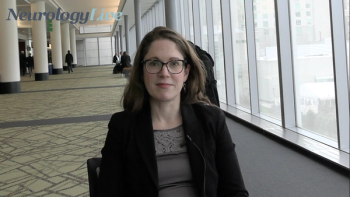
The behavioral neurologist at VA Boston Healthcare System talked about screening patients for mild cognitive impairment to improve diagnosis in Alzheimer disease at the 2023 AAN Annual Meeting. [WATCH TIME: 5 minutes]

After 192 weeks, more than 90% of patients on ocrelizumab had no relapses and slightly more than 80% had no 24-week confirmed disability progression.
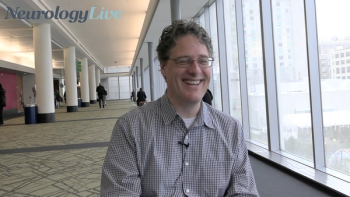
The director of the Massachusetts General Hospital ALS Care Center talked about CNM-Au8 treatment across three populations, as well as the HEALEY ALS Platform Trial, at the 2023 AAN annual meeting. [WATCH TIME: 5 minutes]

Higher rates of no evidence of disease activity and no 24-week confirmed disability progression or relapses were observed in patients that continued with ocrelizumab.
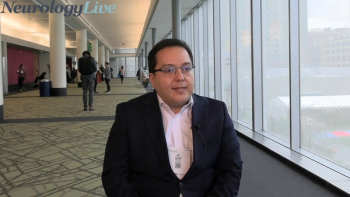
The manager of Clinical Development-Research at Linus Health provided perspective on 2 analyses presented at the 2023 AAN Annual Meeting on the reliability of the DCTclock to detect cognitive impairment. [WATCH TIME: 4 minutes]

No significant differences between P2B001 and Prami-ER were seen in total UPDRS responders, UPDRS Part II, and UPDRS Part III scores among those with Parkinson disease.
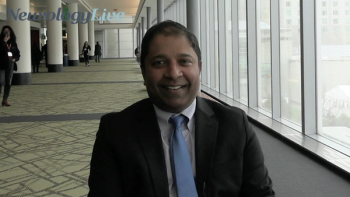
The senior investigator at the National Institute on Aging talked about targeting pathologies in neurodegenerative diseases at the 2023 AAN Annual Meeting. [WATCH TIME: 6 minutes]

Adverse events like dyskinesia, ON and OFF phenomenon, and falls, were all higher during the 4-week optimization phase than the 8-week maintenance phase.

Compared with immediate-release levodopa/carbidopa, NeuroDerm’s 24-hour subcutaneous liquid infusion improved ON time without dyskinesia and with nontroublesome dyskinesia.

Findings showed a significant reduction in mean monthly migraine days with atogepant 60 mg once daily for patients with episodic migraine compared with placebo across a 12-week period.

In a subgroup of patients with 300 m to 400 m 6MWD scores in the phase 3 Study 041, ataluren (Translarna; PTC Therapeutics) showed particular improvements from baseline.
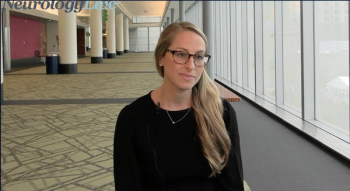
The pediatric neuroimmunology fellow at NYU Langone provided perspective on a study presented at AAN 2023 comparing cognitive trajectories of pediatric and adult multiple sclerosis. [WATCH TIME: 3 minutes]

Zavegepant, a calcitonin gene-related peptide (CGRP) receptor antagonist, provided onset of pain relief as early as 15 minutes postdose and sustained benefits to 48 hours post dose.

The data, from the phase 3 ASCLEPIOS I and II trials and ALITHIOS open-label extension, suggest that most patients remained free from disease progression, with most progression being independent of relapse activity.

An interim analysis showed no reduction in T-cell counts and their subsets as a consequence of B-cell depletion in the first year of treatment with ocrelizumab.
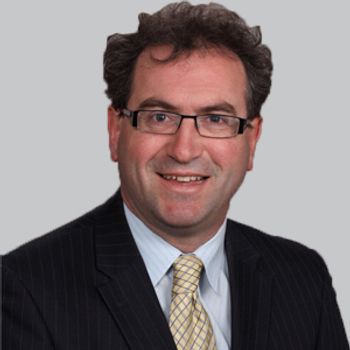
Updated results to the phase 3 CHAMPION-NMOSD trial of ravulizumab showed significantly lower HAI score worsening following treatment.
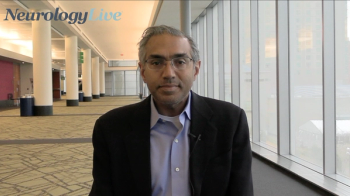
The medical director of the Rocky Mountain Movement Disorders Center talked about the motivations of the phase 2 study on ANX005 for Huntington disease at the 2023 AAN Annual Meeting. [WATCH TIME: 3 minutes]

FDA-approved for adults with generalized myasthenia gravis in 2016, eculizumab continued to show promising efficacy and safety responses in adolescents with the disease, regardless of on concomitant use of IVIG.
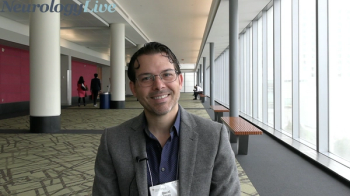
The neurologist at Montefiore Medical Center, Albert Einstein College of Medicine, provided insight on the need to improve online resources that provide epilepsy surgery information to patients. [WATCH TIME: 4 minutes]

The director of the Feil Family Brain and Mind Research Institute at Weill Cornell Medicine spoke about preserving brain function through medical, sociopolitical, and educational efforts as part of his presentation at the 2023 AAN annual meeting. [WATCH TIME: 6 minutes]

Test your neurology knowledge with NeurologyLive®'s weekly quiz series, featuring questions on a variety of clinical and historical neurology topics. This week's topic is the history of the American Academy of Neurology.

The majority of treatment-emergent adverse events from IPX203 were mild or moderate in nature, and occurred within the first 90 days of treatment.